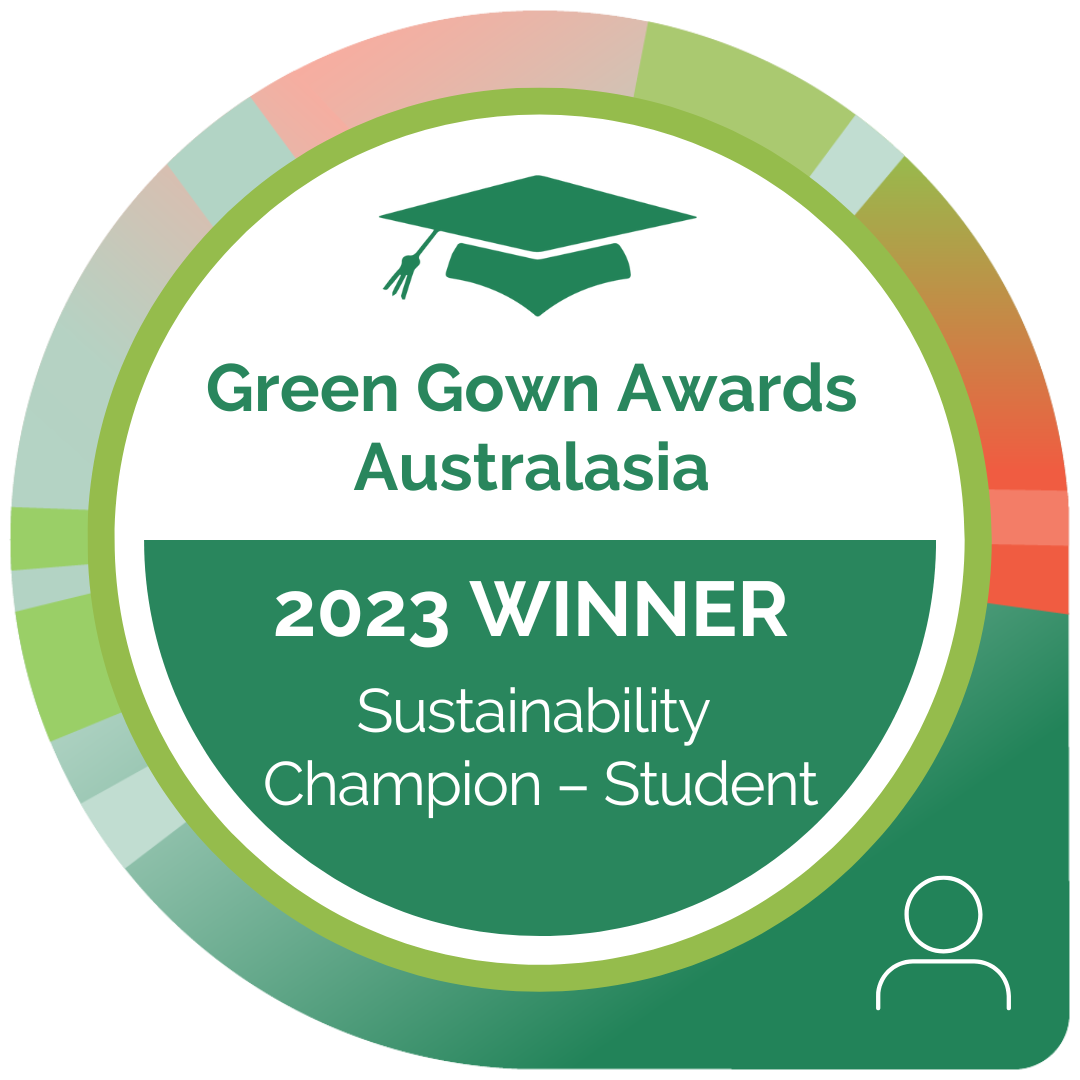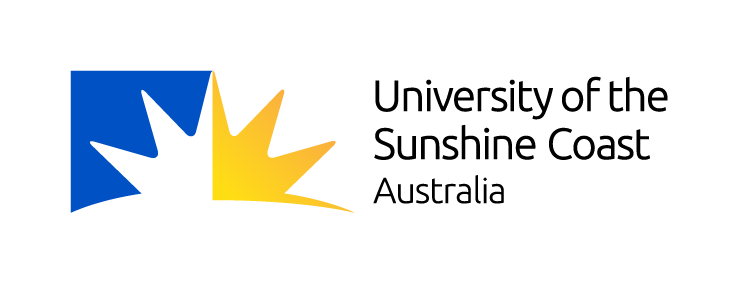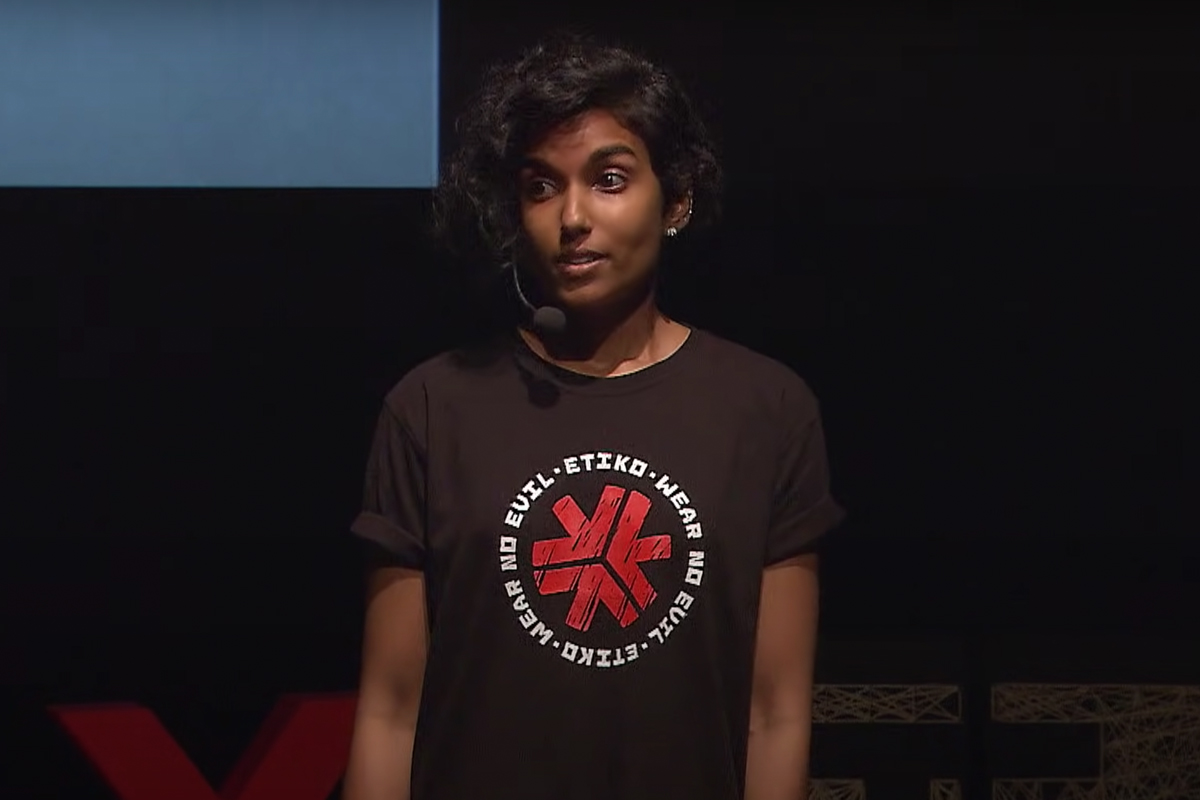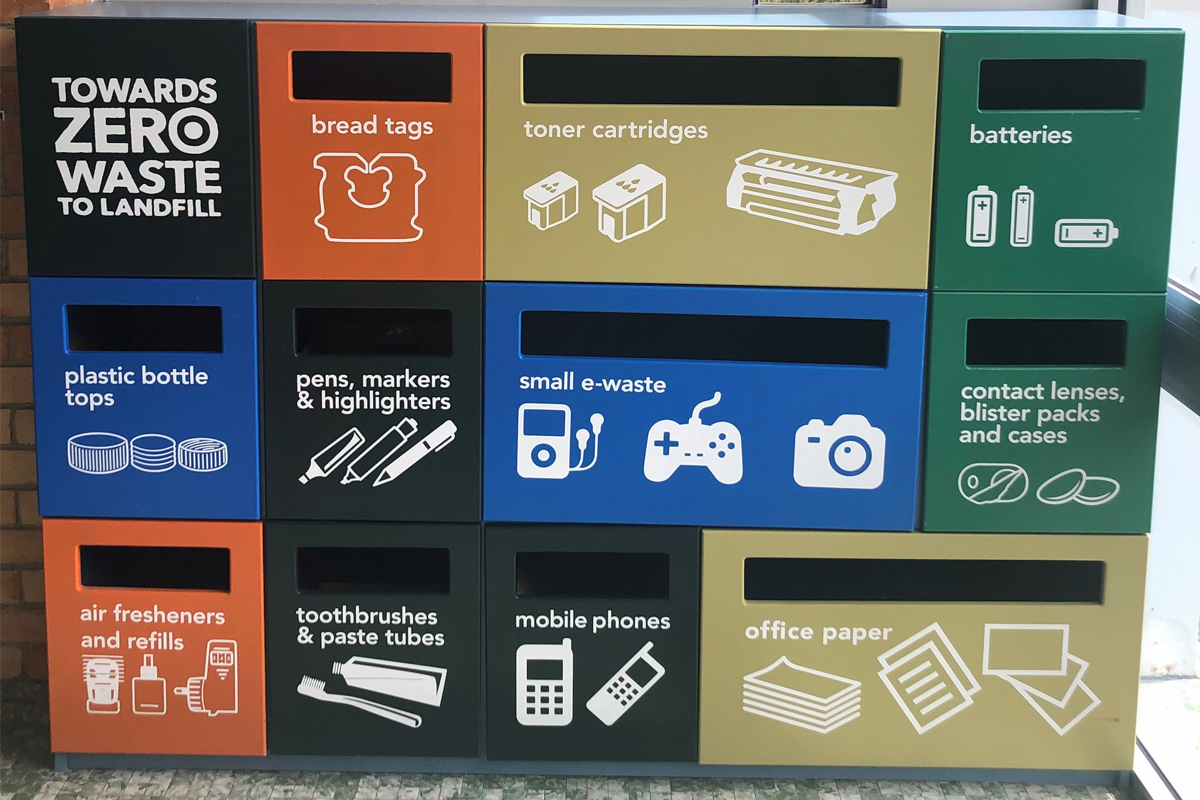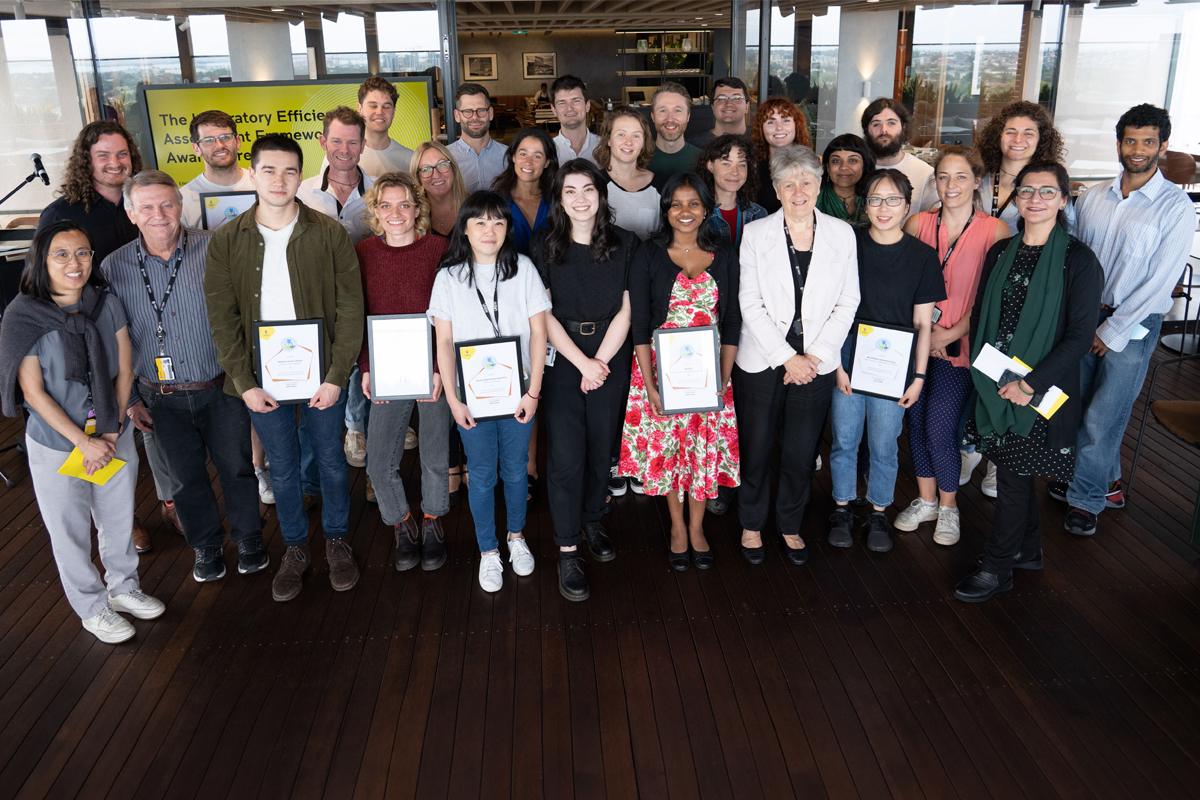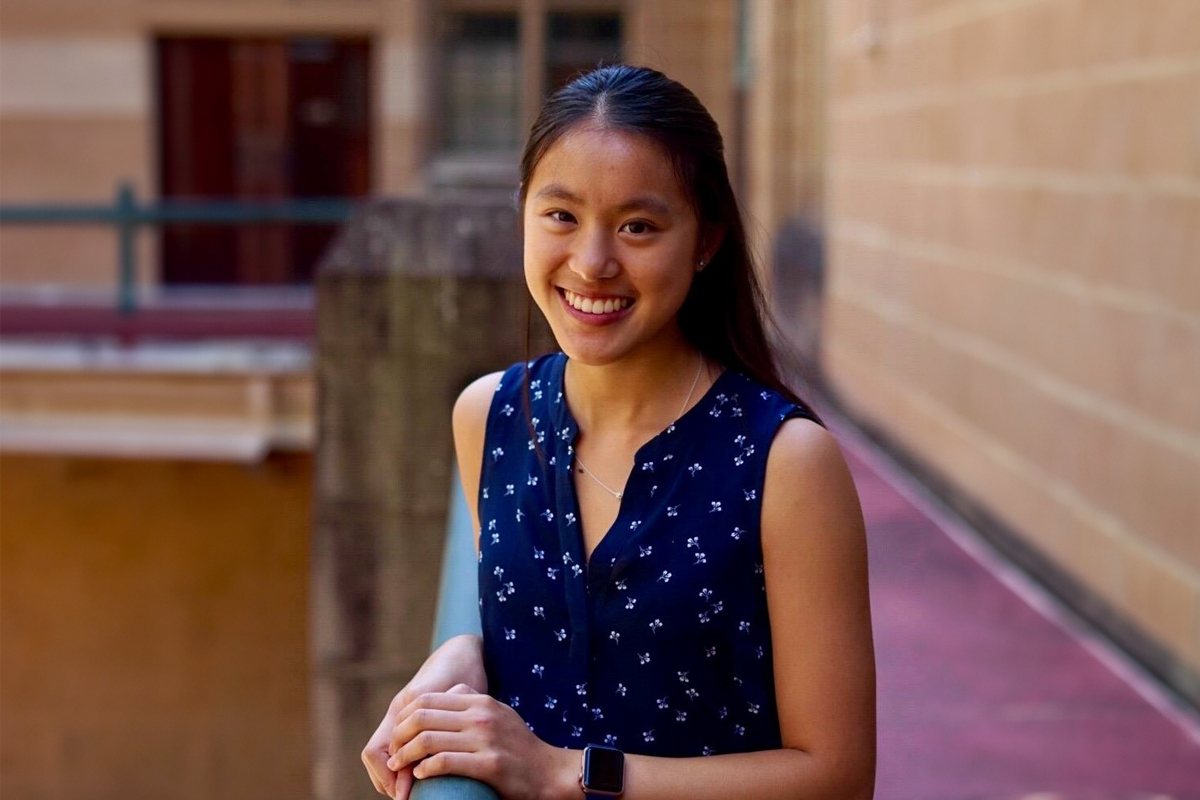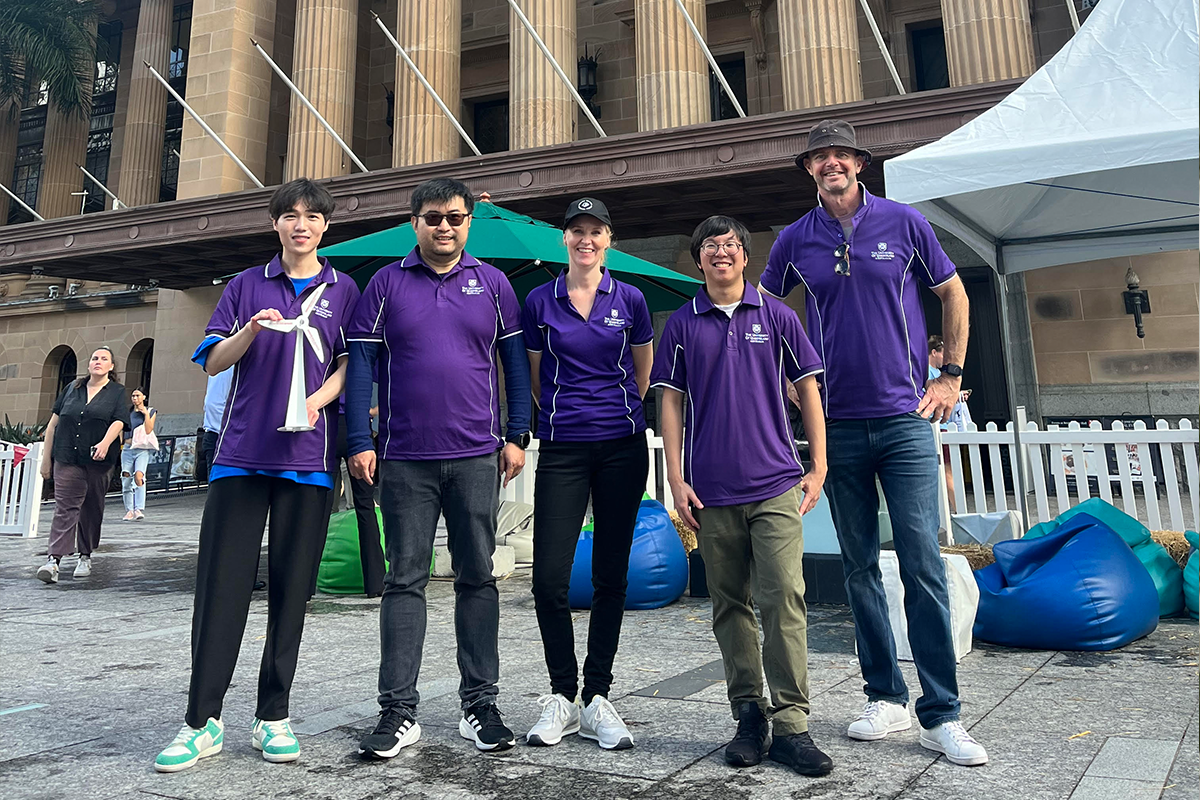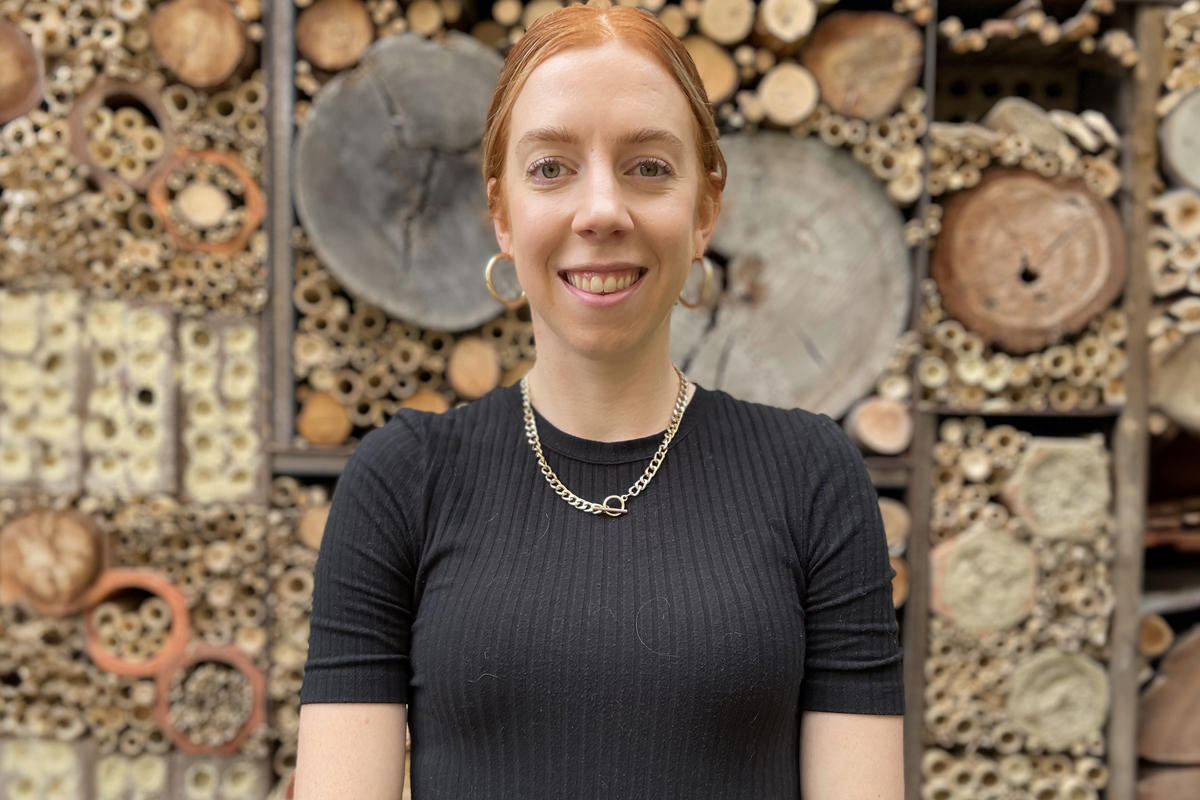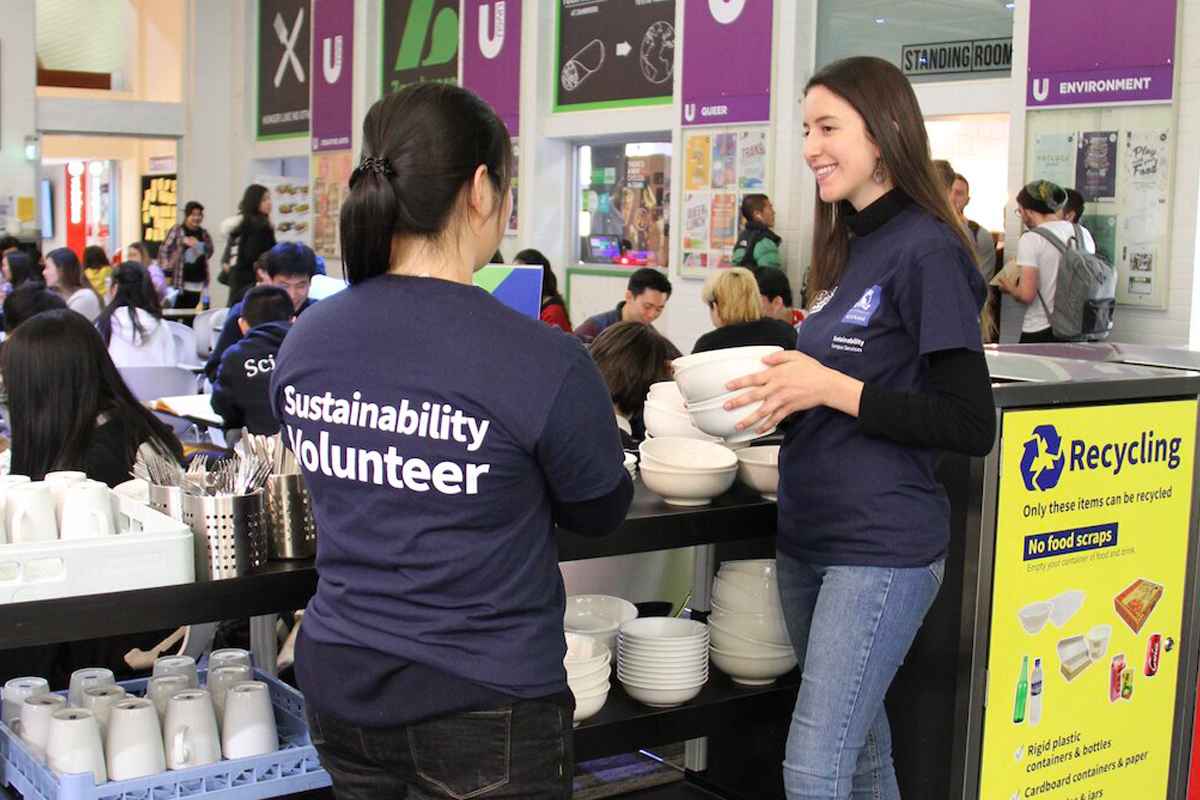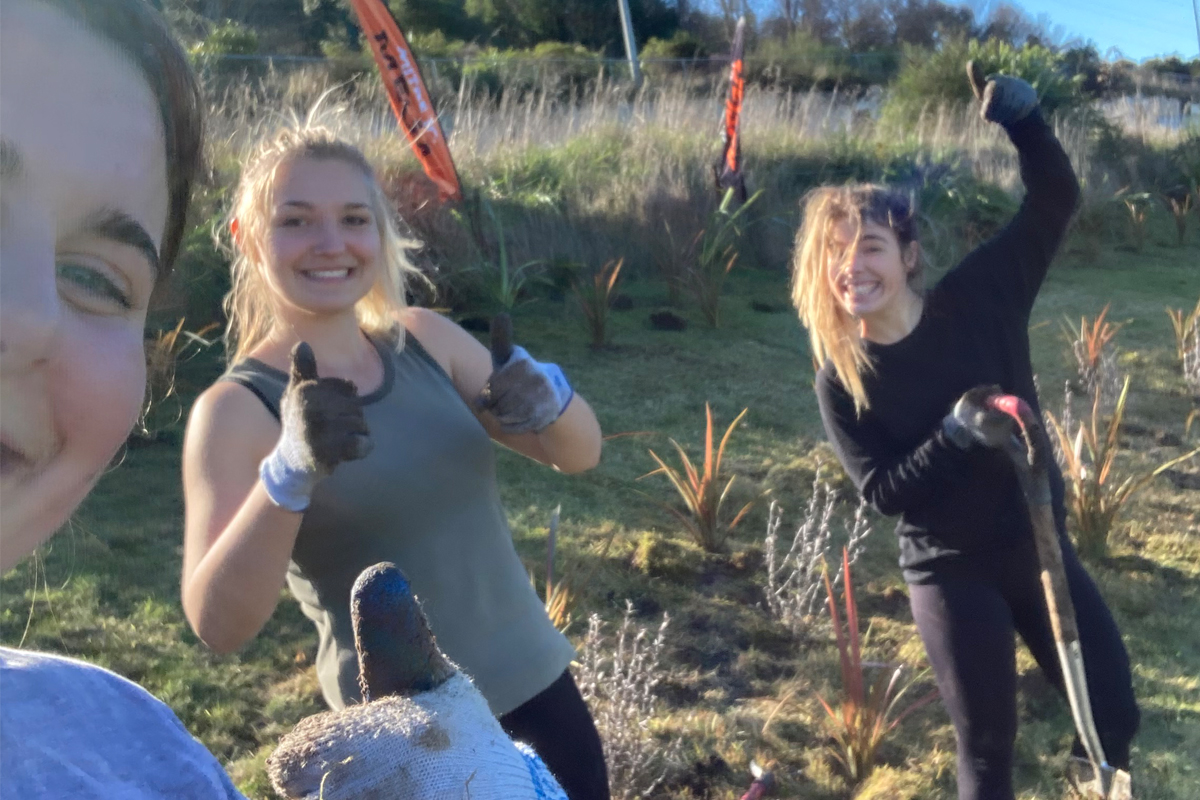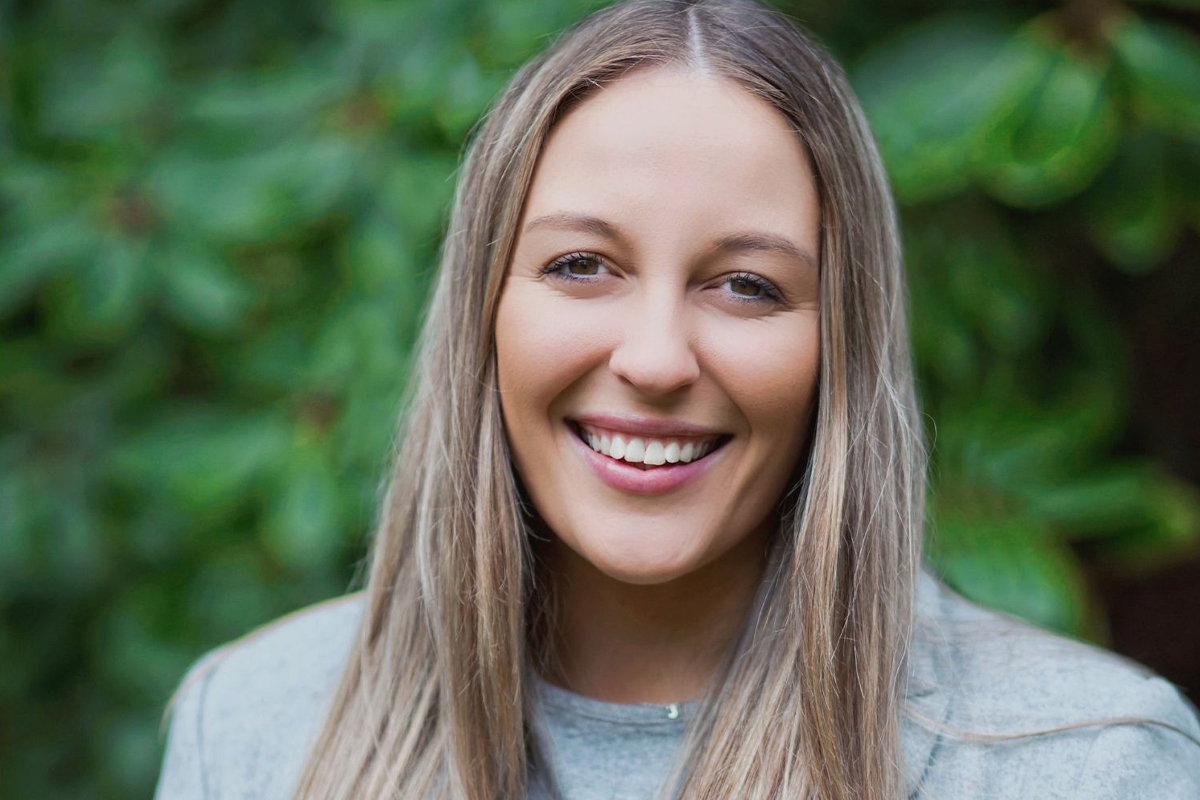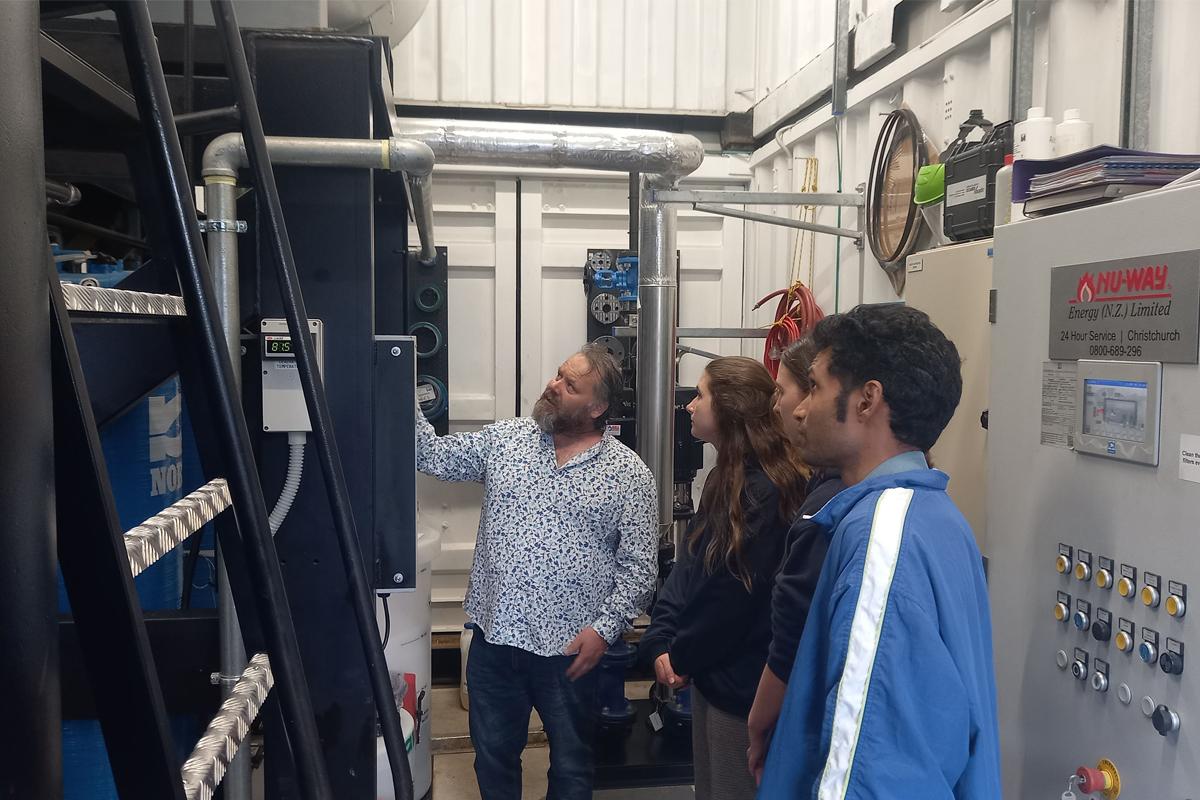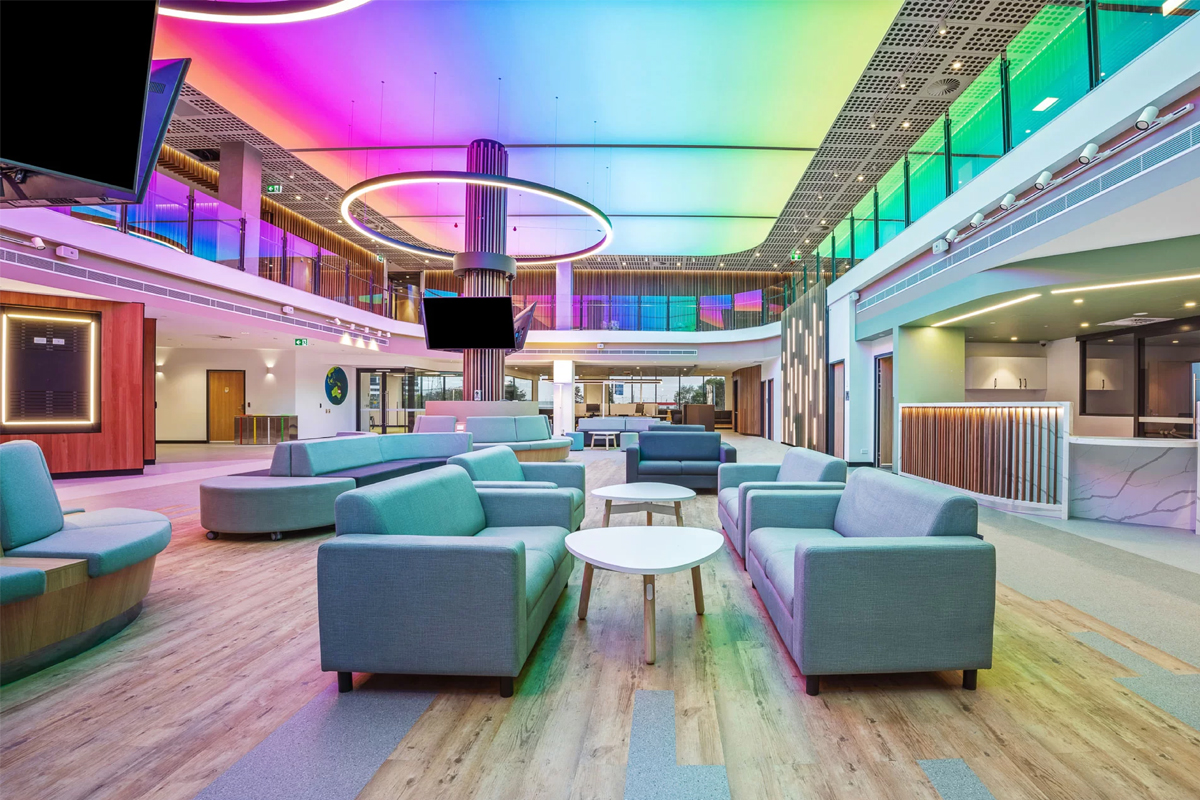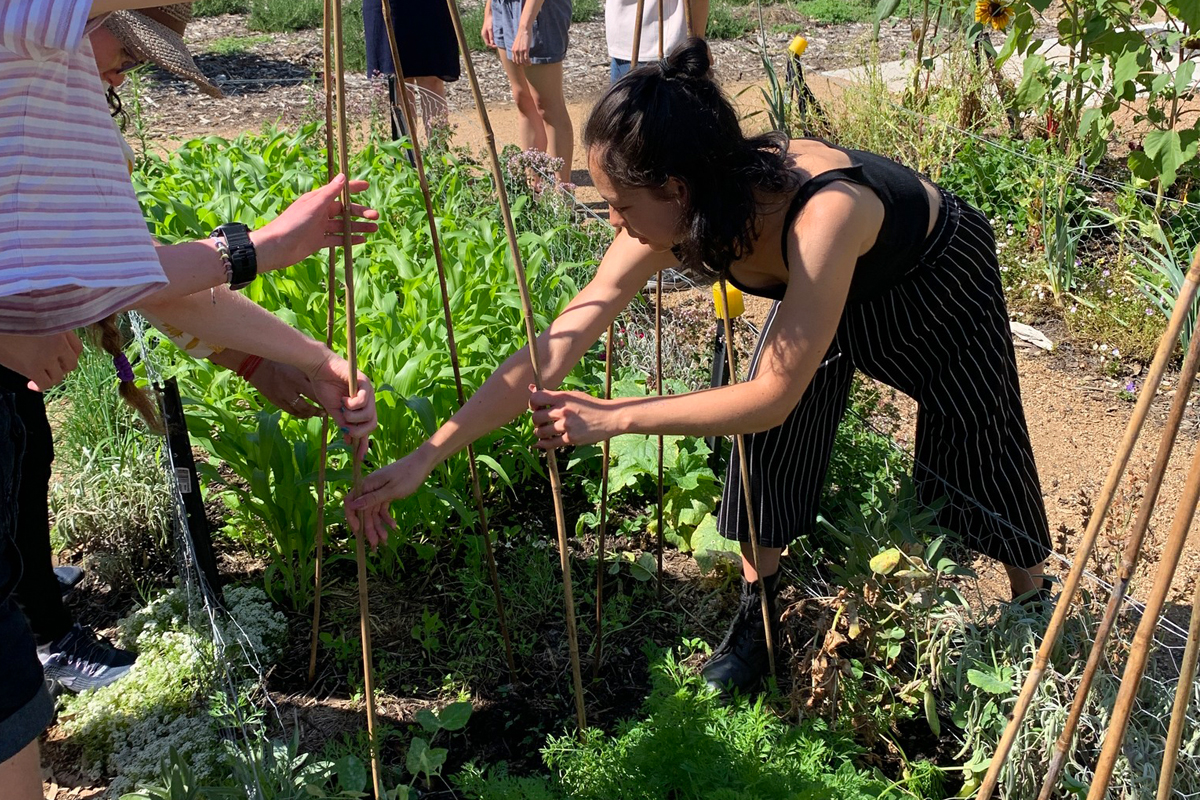Sustainability Champion – Student/Winners category
My actions are aimed at creating waves of change beyond myself to contribute to my vision of accessible sustainability.
Firstly, to be able to structurally empower students and create a positive impact in our community together, I relaunched the Enactus division at UniSC in 2022 and lead it with great success: our team won the award for newcoming team at the National Competition in Sydney in July 2022, and for Ally of First Nations Culture with our Connect 2 Country project. In 2023 we continue to work with 2 teams on 2 projects, including Sharing Plate (a food redistribution app) and Connect 2 Country (a one-stop-map for everything First Nations). Both apps aim to increase sustainable and connected communities while contributing to the following Sustainable Development Goals: SDG2 Zero Hunger, SDG10 Reduced Inequalities, SDG11 Sustainable Cities and Communities, SDG 16 Peace Justice and Strong Institutions, and SDG17 Partnerships for the Goals. These projects are led by 9 undergraduate students and 1 postgraduate student from across the University (Schools of Business to Science, Technology and Engineering, and Arts and Social work). To increase connection and collaboration between the Queensland Enactus teams, I organised an Enactus Queensland teams’ New Year’s gathering in 2023. In July 2023 we will participate in the National competition with our progressed projects, which are set to be implemented in Semester 2, 2023. After piloting at the University, they will be iterated and upscaled to roll out in the wider community. My role as President is focused on empowering the students in our team to be successful in their endeavours, from workshopping business models, app development and presenting to organising fundraisers, team building and meetings, and motivational guidance. My belief in my team helps them believe in themselves. My leadership is focused on providing the team skills, agency and confidence that we can and will make an impact together: Sharing Plate will address food waste and food insecurity on our University campus and in the surrounding community while Connect 2 Country will increase understanding of and connection with First Nations culture on our campus and beyond. The time I dedicate to Enactus is a priceless investment for all of us.
In addition, in line with one of our Enactus projects, Connect 2 Country, aimed at being an ally for First Nations Voices, I am part of the extracurricular Undergraduate Research Fellowship focused on co-developing sustainable ecosystem services-based forestry with First Nations Communities of Arnhem Land (Northern Territories) for which I assist in developing and facilitating 4 days of workshops attended by the Traditional Owners of different First Nations Communities of Arnhem Land, and mainly focused on the Birany Birany community, and related stakeholders such as the Northern Territories Government, and forestry-specific bodies such as PSC, PEFC, and ALPA. I will create communication material by capturing this information audio visually to present in October at the Australian ANZIF conference and expand the ripple effects of the project beyond Arnhem land.
Secondly, I am a Green Ambassador to Humanitarian Affairs after attending the Green Summit in the UN headquarters in Bangkok in December 2022 together with 150 students from across the world. I currently co-organise empowering workshops to upskill the sustainability of students, staff and the wider community at the University of the Sunshine Coast. Together with my fellow UniSC Green Ambassador, we created a working group of academics and professional staff members at the University, which exists of 20+ academics of different schools and departments (i.e., International Relations, Science, Technology and Engineering, Marketing and Sustainability). The first workshops will be delivered during Sustainability Week in semester 2, in collaboration with the University’s Sustainability Principal and the multidisciplinary group of academics. The events will be held on multiple campuses, from Fraser Coast to Moreton Bay and Caboolture. Following the evaluation and re-iteration of the workshop, monthly workshops will be delivered in line with meaningful global environmental events regarding the SDGs, such as World Environment Day, and World Ocean Day.
Further, to increase sustainability on campus in general, I am an active member of the Sustainability and Engagement workgroup and the Campus Life Workgroup of the University. These groups aim to increase sustainability and engagement on campus, which both are crucial to create accessible sustainability. In my student volunteering role in these working groups, I provide the university student sustainability perspectives.
Simultaneously, to increase overall accessibility and sustainability, and empower students around me, I have been highly involved in student governance since my start at UniSC. I have been a student member on the UniSC Council, Student Senate Co-chair, Student Representative for Science, Technology and Engineering Students (STE), and Student Representative for the International Student Group (ISG). In these roles I have been intensively advocating and liaising with stakeholders at the University to ensure more equity in terms of access to learning materials, access to fieldtrips, and gender equity. I also participated in the panel conversation Leave no One Behind as part of the Students as Partners National Roundtable 2022 (and contributed to the organisation of this Roundtable in theme of ‘sustainable partnerships’), and in the Gender Equity Panel on International Women’s Day 2023.
In my STE Student Representative role, I was part of the group of students who organised the ‘Outback Tour’ in 2022. This tour was intended to connect the Coast with the Outback, and enhance connection, collaboration and understanding between students and industry/businesses/agriculture/science in both areas. As an ISG Student Representative I was among the students to start the Culture Connect initiative in 2022, a 3-weekly event to connect international and domestic students and promote intercultural exchange while helping international students to integrate. In addition, I volunteered in many events on campus to promote campus life and engagement, receiving a 2022 Students as Partners Award for my outstanding contributions.
Lastly, in recognition of my ‘outstanding achievement in the Bachelor of Environmental Management program and my contribution to the University I have been awarded the ACEDD Scholar Award 2023 by the Australian Council of Environmental Deans and Directors.
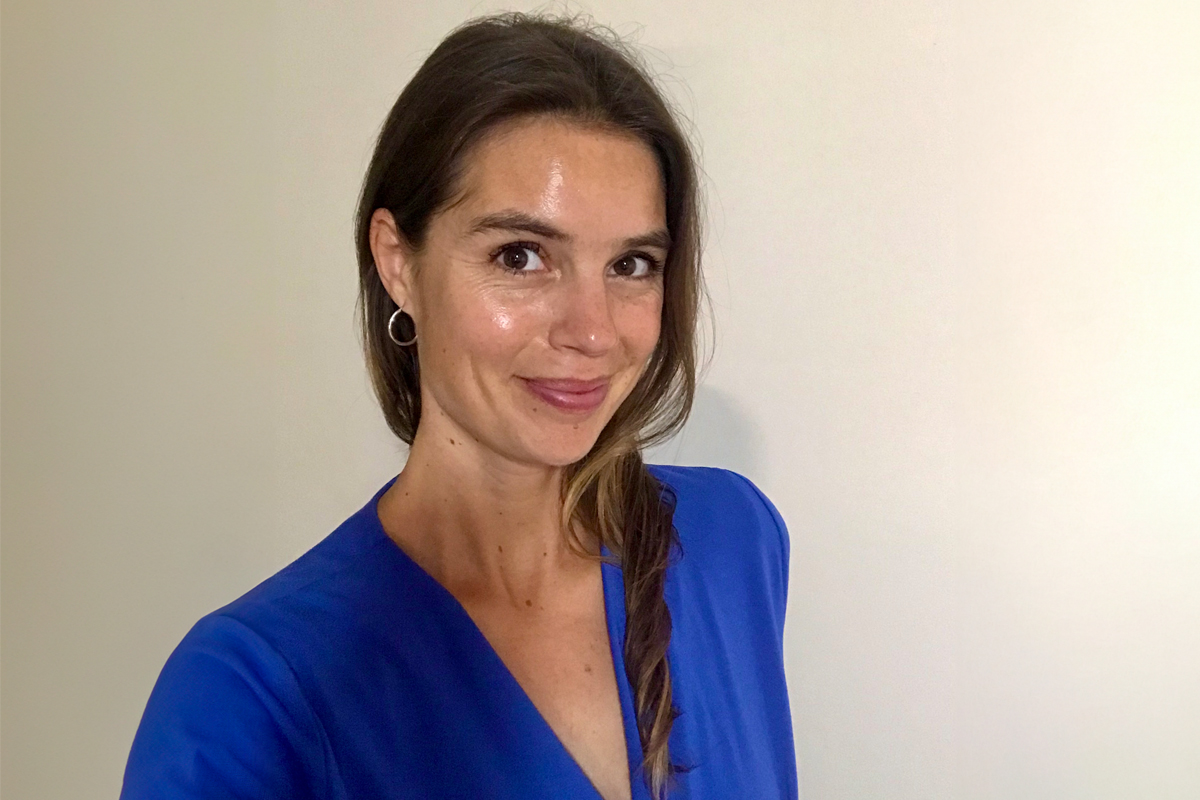
Impact and benefits
The benefits and impacts of my actions are divided amongst the impact created by my leadership for Enactus, my initiative as Green Ambassador and my role as student representative.
Under my leadership of Enactus UniSC, we won 2 awards at our first National competition in Sydney in 2022. As a result, the University was keen to support us and we managed to attract more students, doubling our members from 5 to 10 students. The awards gave us credibility to participate in workshops and events thereafter and gave me credibility to transfer some of my skills and knowledge to my teammates. Enactus UniSC students report to have gained skills from their participation in Enactus: public speaking, increased understanding of sustainability, including the SDGs, social entrepreneurial skills, project and team management skills, networking skills, and the use of the valuable MS Word platform Teams. MS Teams is normally not accessible for students, but I managed to make it accessible by liaising with the Students as Partners office. Thanks to our increasing recognition at the University, we could participate free of charge in exchange for volunteering at a SDG startup weekend in August 2022 organised by Silicon Coast, a local tech startup collective. The participants gained valuable business skills, including building a minimum viable product (MVP), performing a market review, asking critical questions, seeking mentorships, drafting a business model, and pitching a business concept, on top of practising public speaking, project management and interpersonal skills. This participation introduced us to the Sunshine Coast tech startup community, which gave us access to professional development events, including FWD-fest (a 4-day startup tech conference held at the University of the Sunshine Coast), and 17x in Brisbane, a local spin-off of the global 17x conferences. This kind of events provided the participants with business and interpersonal skills, public speaking, networking, and sales skills. It expanded their horizons and brought them in contact with people from beyond our small community, which is uncommon for a regional university. Further, I organised app-development workshops targeted at transitioning from ideation to creation. In these workshops participants learned to finetune their ideas and gained confidence to turn their idea into reality. An unexpected outcome from my leadership has been the self-reported increased confidence and motivation of participating students to take up leadership positions within Enactus and beyond, confirming that they have been empowered and inspired by my leadership approach.
Secondly, when I was honoured with the title of Green Ambassador in December 2022, I knew that I wanted to make the most of my title. During the summit I wrote and published daily LinkedIn articles to summarise the key takeaways for all attendees and beyond, starting to inspire and empower the wider community prior to the end of the summit. As soon as we returned to the University, my fellow student and I immediately started planning on our projects: how can we bring our lessons home and empower and inspire as many people in our community as possible? We launched a survey to find out which sustainability issues people are interested in, and which barriers they are facing. Next, we created a working group involving staff and academics from all different schools to increase our knowledge and impact-base. Our goal is to organise a series of workshops targeted to upskill the sustainability skills of students, staff and community members. These workshops will be action-based allowing participants to practice accessible and budget solutions in the workshops to overcome the identified barriers of lack of knowledge, skills and time and money. An example of the proposed workshops is: preparing budget-friendly, healthy, low-carbon plant-based diets with students and staff from Dietetics in which participants can experience what a healthy meal for planet and people tastes like and how it does not require excessive time/money/skills. As a result, participants can take these skills home and inspire their friends/family/colleagues to embark on the same journey. In addition, participants are invited to propose and facilitate future workshops if they have a skill to share or detect a skill gap.
Another example is the creation of a public database on our website that includes all current on- and off-campus initiatives with regards to sustainability, so interested people can take part of a sustainability initiative convenient to their location, interests and skills. The flow-on effect is increased connection between the University and the wider community. As such, the sustainability actions of our participants do not start and stop at the workshops, but the workshops form part of the wider network of initiatives that already exist and are designed to fill the gaps.
Thirdly, in my Student Representative role, I was able to influence the accessibility of the online learning materials for all students of the University by liaising with different stakeholders at all the relevant governance levels, from Student Senate and disability groups to University Council and union representatives. As a result, a policy was implemented to ensure that online learning materials were released 4 weeks in advance (not at random), and there came increased awareness about necessary access features such as captioning and format. Simultaneously, by also liaising with academics and professional staff, we pushed for paid professional training for casual staff to ensure optimal quality of the learning materials yet not at the cost of staff. As such, thanks to a diplomatic, empathic yet assertive leadership style I served as a watchdog of equity, accessibility and quality of learning in the transition to online learning.
This connective approach resonates with the other impacts I made as Student Representative. For example, with the Student Representatives of the Science, Technology and Engineering (STE) students, we aimed to connect both the issue of ‘brain drain’ from the outback and the need for skilled workers and the issue of placement and research places for STE students. By organising a tour with these students into the outback, we intended to close the gap between both and create more connection between coast and outback. Unfortunately, due to the flooding at that time, the tour couldn’t go ahead. Regardless the cancellation of the tour, we increased the connectivity between STE students, and sparked more interest in the outback.
Connecting problems to create solutions is how we create impact with our Enactus projects. By connecting food insecurity with food waste, we create a positive impact at our university campus and beyond, by providing students (and other community members) in food poverty with accessible food, while local vendors will save costs by reducing their waste footprint. Similarly Connect 2 Country will benefit First-Nations and non-First-Nations students and community members by gaining access to and understanding of their own culture and the culture of others.
Finally, I know my actions have additional ripple effects of inspiration and empowerment on other students, which I hear when the feedback loop closes and one occasionally mentions ‘Because you did this, I believe I can do X’. That, to me, is sustainable and accessible sustainability. It is walking together and inspiring others to walk their path too.
Leadership and engagement
The University of the Sunshine Coast is well-known for its sustainability ambitions, and scores every year among the top universities of the Times Higher Education Impact Rankings, which is why I have chosen to study here. As such my actions align with the vision of the University, and by my active involvement in distinctive levels of university governance I can continuously remind our decision-makers to uphold this vision.
What makes my actions different is my holistic and sustainable approach to ensuring sustainability is accessible. My active involvement in different parts of the University allows me to anchor my projects in the wider institution and ensure they last and create an impact beyond me. To that end, I consciously create structures and procedures to base these projects on, so they can be replicated in other projects and by other university members ensuring their sustainability and longevity. My involvement in multiple initiatives and governance levels enables me to develop synergies and linkages and increase the impact and sustainability of these initiatives.
Moreover, I hope to build a legacy that I pass on to the next student representative who takes over my Student Senate and Council role, and to the next student who takes on my Enactus Presidency. To that end, I built systems that can be replicated by others and ensure transparency in my communication: the Enactus Teams platform, a hand-over for the next student representatives, and the Green Ambassador website. Similarly, I emphasise in our Enactus projects to apply framework and systems thinking by finding ways for the projects to be upscaled and replicated by others, beyond our current scope, and to connect with Enactus teams across Australia to build a solid base embedded in the larger framework.
In addition, to value the interdisciplinary nature of sustainability, I liaise between the different schools of the University, have students from different schools involved in the projects, as reflected in our Enactus teams and our Green Ambassador working group. Sustainability should be an integral part of everything we do. This approach sets me apart as too often sustainability and universities, including ours, are siloed and have artificial boundaries between the different schools, creating barriers that undermine sustainability.
Lastly, my focus is on solutions, on taking action and ‘inspiring’ sustainability. The projects I run are action-based and intend to upskill participants so they can create even bigger waves of change. That to me is sustainability: actions and impacts that last beyond me and beyond the project.
Wider societal impact
My projects benefit society beyond the University, in the following ways:
Firstly, our Enactus projects are aimed at impacting the wider society in two ways: the students participating in the project will be empowered to apply these skills beyond their studies and the upscalable nature of the projects aims to impact the wider community after piloting at the University. Sharing Plate, the food redistribution app will be tested at the University amongst university students and local food vendors. It will connect the Sunshine Coast food providers and food insecure people. Beyond reducing food waste (and related methane emissions) and reducing food insecurity, the app’s value sits in the social connection it creates between different members of the community and the empowerment of the food insecure community members. They are not considered as deficient or aid/seekers but as aid providers who contribute to sustainable consumption of the wider community. The second app, Connect 2 Country, a centralised platform of First Nations Cultures, will provide all Sunshine Coast community members, First Nations and non-First Nations, with access to First Nations Culture to preserve and promote and create a digital connection based on understanding. This app will be created on a replicable and upscalable framework that can be iterated and replicated across the world where communities seek to (re)connect with First Nations Cultures. This emphasis on increasing connectivity between community members is important because we are a regional university, where these centralised and collective resources are more scattered and less effective than in metropolitan university settings.
Secondly, the impact of my student representation work has value mainly for the University, but I never underestimate the ripple effects of my actions. I know that all the students I worked with live and work outside of the University and can take their empowerment and inspiration with them. In addition, my focus on student equity and well-being may cause lasting changes within and beyond the University, not the least my mark on the provision of affordable and safe student accommodation, which will benefit the entire community.
Lastly, the Green Ambassadors project is aimed at upskilling students and staff of the University of the Sunshine Coast (across the Sunshine Coast, Moreton Bay, Harvey Bay, Fraser, Gympie and Caboolture campuses), and of the surrounding communities. Moreover, these workshops start from reported sustainability barriers and therefore aim at tackling these barriers by practising actionable insights and skills during the workshop focused on sustainable and accessible sustainability: this does not require pre-existing knowledge, much time and/or money, it just requires the attendees to show up. Considering the high percentage of students from a lower socio-economic background at our university this is even more important, while our regional context requires more creativity and community-based initiatives in contrast to larger metropolitan university contexts where more resources may be available and different socio-economic backgrounds are pre-dominantly represented at the University.
Related finalists
Climate Action/Winners
Climate Action/Winners
Benefitting Society/Winners
Benefitting Society/Winners
Creating Impact/Winners
Creating Impact/Winners
Sustainability Champion – Student/Winners
Sustainability Champion – Student/Winners
Creating Impact/Winners
Creating Impact/Winners
Leading the Circular Economy/Winners
Leading the Circular Economy/Winners
Creating Impact/Winners
Creating Impact/Winners
Sustainability Champion – Student
Sustainability Champion – Student
Diversity, Equity & Inclusion in Sustainability/Winners
Diversity, Equity & Inclusion in Sustainability/Winners
Next Generation Learning & Skills/Winners
Next Generation Learning & Skills/Winners
Sustainability Champion – Student
Sustainability Champion – Student
Sustainability Institution of the Year/Winners
Sustainability Institution of the Year/Winners
Leading the Circular Economy/Winners
Leading the Circular Economy/Winners
Sustainability Champion – Student/Winners
Sustainability Champion – Student/Winners
Sustainability Champion – Staff/Winners
Sustainability Champion – Staff/Winners
Next Generation Learning & Skills/Winners
Next Generation Learning & Skills/Winners
Next Generation Learning & Skills/Winners
Next Generation Learning & Skills/Winners
Sustainability Champion – Student
Sustainability Champion – Student
Sustainability Champion – Staff/Winners
Sustainability Champion – Staff/Winners
Sustainability Champion – Staff/Winners
Sustainability Champion – Staff/Winners
Student Engagement/Winners
Student Engagement/Winners
Past Winners
Creating Impact/Winners
Creating Impact/Winners
Leading the Circular Economy/Winners
Leading the Circular Economy/Winners
Leading the Circular Economy/Winners
Leading the Circular Economy/Winners
Next Generation Learning & Skills/Winners
Next Generation Learning & Skills/Winners
Next Generation Learning & Skills/Winners
Next Generation Learning & Skills/Winners
Next Generation Learning & Skills/Winners
Next Generation Learning & Skills/Winners
My actions are aimed at creating waves of change beyond myself to contribute to my vision of accessible sustainability.
Firstly, to be able to structurally empower students and create a positive impact in our community together, I relaunched the Enactus division at UniSC in 2022 and lead it with great success: our team won the award for newcoming team at the National Competition in Sydney in July 2022, and for Ally of First Nations Culture with our Connect 2 Country project. In 2023 we continue to work with 2 teams on 2 projects, including Sharing Plate (a food redistribution app) and Connect 2 Country (a one-stop-map for everything First Nations). Both apps aim to increase sustainable and connected communities while contributing to the following Sustainable Development Goals: SDG2 Zero Hunger, SDG10 Reduced Inequalities, SDG11 Sustainable Cities and Communities, SDG 16 Peace Justice and Strong Institutions, and SDG17 Partnerships for the Goals. These projects are led by 9 undergraduate students and 1 postgraduate student from across the University (Schools of Business to Science, Technology and Engineering, and Arts and Social work). To increase connection and collaboration between the Queensland Enactus teams, I organised an Enactus Queensland teams’ New Year’s gathering in 2023. In July 2023 we will participate in the National competition with our progressed projects, which are set to be implemented in Semester 2, 2023. After piloting at the University, they will be iterated and upscaled to roll out in the wider community. My role as President is focused on empowering the students in our team to be successful in their endeavours, from workshopping business models, app development and presenting to organising fundraisers, team building and meetings, and motivational guidance. My belief in my team helps them believe in themselves. My leadership is focused on providing the team skills, agency and confidence that we can and will make an impact together: Sharing Plate will address food waste and food insecurity on our University campus and in the surrounding community while Connect 2 Country will increase understanding of and connection with First Nations culture on our campus and beyond. The time I dedicate to Enactus is a priceless investment for all of us.
In addition, in line with one of our Enactus projects, Connect 2 Country, aimed at being an ally for First Nations Voices, I am part of the extracurricular Undergraduate Research Fellowship focused on co-developing sustainable ecosystem services-based forestry with First Nations Communities of Arnhem Land (Northern Territories) for which I assist in developing and facilitating 4 days of workshops attended by the Traditional Owners of different First Nations Communities of Arnhem Land, and mainly focused on the Birany Birany community, and related stakeholders such as the Northern Territories Government, and forestry-specific bodies such as PSC, PEFC, and ALPA. I will create communication material by capturing this information audio visually to present in October at the Australian ANZIF conference and expand the ripple effects of the project beyond Arnhem land.
Secondly, I am a Green Ambassador to Humanitarian Affairs after attending the Green Summit in the UN headquarters in Bangkok in December 2022 together with 150 students from across the world. I currently co-organise empowering workshops to upskill the sustainability of students, staff and the wider community at the University of the Sunshine Coast. Together with my fellow UniSC Green Ambassador, we created a working group of academics and professional staff members at the University, which exists of 20+ academics of different schools and departments (i.e., International Relations, Science, Technology and Engineering, Marketing and Sustainability). The first workshops will be delivered during Sustainability Week in semester 2, in collaboration with the University’s Sustainability Principal and the multidisciplinary group of academics. The events will be held on multiple campuses, from Fraser Coast to Moreton Bay and Caboolture. Following the evaluation and re-iteration of the workshop, monthly workshops will be delivered in line with meaningful global environmental events regarding the SDGs, such as World Environment Day, and World Ocean Day.
Further, to increase sustainability on campus in general, I am an active member of the Sustainability and Engagement workgroup and the Campus Life Workgroup of the University. These groups aim to increase sustainability and engagement on campus, which both are crucial to create accessible sustainability. In my student volunteering role in these working groups, I provide the university student sustainability perspectives.
Simultaneously, to increase overall accessibility and sustainability, and empower students around me, I have been highly involved in student governance since my start at UniSC. I have been a student member on the UniSC Council, Student Senate Co-chair, Student Representative for Science, Technology and Engineering Students (STE), and Student Representative for the International Student Group (ISG). In these roles I have been intensively advocating and liaising with stakeholders at the University to ensure more equity in terms of access to learning materials, access to fieldtrips, and gender equity. I also participated in the panel conversation Leave no One Behind as part of the Students as Partners National Roundtable 2022 (and contributed to the organisation of this Roundtable in theme of ‘sustainable partnerships’), and in the Gender Equity Panel on International Women’s Day 2023.
In my STE Student Representative role, I was part of the group of students who organised the ‘Outback Tour’ in 2022. This tour was intended to connect the Coast with the Outback, and enhance connection, collaboration and understanding between students and industry/businesses/agriculture/science in both areas. As an ISG Student Representative I was among the students to start the Culture Connect initiative in 2022, a 3-weekly event to connect international and domestic students and promote intercultural exchange while helping international students to integrate. In addition, I volunteered in many events on campus to promote campus life and engagement, receiving a 2022 Students as Partners Award for my outstanding contributions.
Lastly, in recognition of my ‘outstanding achievement in the Bachelor of Environmental Management program and my contribution to the University I have been awarded the ACEDD Scholar Award 2023 by the Australian Council of Environmental Deans and Directors.

Impact and benefits
The benefits and impacts of my actions are divided amongst the impact created by my leadership for Enactus, my initiative as Green Ambassador and my role as student representative.
Under my leadership of Enactus UniSC, we won 2 awards at our first National competition in Sydney in 2022. As a result, the University was keen to support us and we managed to attract more students, doubling our members from 5 to 10 students. The awards gave us credibility to participate in workshops and events thereafter and gave me credibility to transfer some of my skills and knowledge to my teammates. Enactus UniSC students report to have gained skills from their participation in Enactus: public speaking, increased understanding of sustainability, including the SDGs, social entrepreneurial skills, project and team management skills, networking skills, and the use of the valuable MS Word platform Teams. MS Teams is normally not accessible for students, but I managed to make it accessible by liaising with the Students as Partners office. Thanks to our increasing recognition at the University, we could participate free of charge in exchange for volunteering at a SDG startup weekend in August 2022 organised by Silicon Coast, a local tech startup collective. The participants gained valuable business skills, including building a minimum viable product (MVP), performing a market review, asking critical questions, seeking mentorships, drafting a business model, and pitching a business concept, on top of practising public speaking, project management and interpersonal skills. This participation introduced us to the Sunshine Coast tech startup community, which gave us access to professional development events, including FWD-fest (a 4-day startup tech conference held at the University of the Sunshine Coast), and 17x in Brisbane, a local spin-off of the global 17x conferences. This kind of events provided the participants with business and interpersonal skills, public speaking, networking, and sales skills. It expanded their horizons and brought them in contact with people from beyond our small community, which is uncommon for a regional university. Further, I organised app-development workshops targeted at transitioning from ideation to creation. In these workshops participants learned to finetune their ideas and gained confidence to turn their idea into reality. An unexpected outcome from my leadership has been the self-reported increased confidence and motivation of participating students to take up leadership positions within Enactus and beyond, confirming that they have been empowered and inspired by my leadership approach.
Secondly, when I was honoured with the title of Green Ambassador in December 2022, I knew that I wanted to make the most of my title. During the summit I wrote and published daily LinkedIn articles to summarise the key takeaways for all attendees and beyond, starting to inspire and empower the wider community prior to the end of the summit. As soon as we returned to the University, my fellow student and I immediately started planning on our projects: how can we bring our lessons home and empower and inspire as many people in our community as possible? We launched a survey to find out which sustainability issues people are interested in, and which barriers they are facing. Next, we created a working group involving staff and academics from all different schools to increase our knowledge and impact-base. Our goal is to organise a series of workshops targeted to upskill the sustainability skills of students, staff and community members. These workshops will be action-based allowing participants to practice accessible and budget solutions in the workshops to overcome the identified barriers of lack of knowledge, skills and time and money. An example of the proposed workshops is: preparing budget-friendly, healthy, low-carbon plant-based diets with students and staff from Dietetics in which participants can experience what a healthy meal for planet and people tastes like and how it does not require excessive time/money/skills. As a result, participants can take these skills home and inspire their friends/family/colleagues to embark on the same journey. In addition, participants are invited to propose and facilitate future workshops if they have a skill to share or detect a skill gap.
Another example is the creation of a public database on our website that includes all current on- and off-campus initiatives with regards to sustainability, so interested people can take part of a sustainability initiative convenient to their location, interests and skills. The flow-on effect is increased connection between the University and the wider community. As such, the sustainability actions of our participants do not start and stop at the workshops, but the workshops form part of the wider network of initiatives that already exist and are designed to fill the gaps.
Thirdly, in my Student Representative role, I was able to influence the accessibility of the online learning materials for all students of the University by liaising with different stakeholders at all the relevant governance levels, from Student Senate and disability groups to University Council and union representatives. As a result, a policy was implemented to ensure that online learning materials were released 4 weeks in advance (not at random), and there came increased awareness about necessary access features such as captioning and format. Simultaneously, by also liaising with academics and professional staff, we pushed for paid professional training for casual staff to ensure optimal quality of the learning materials yet not at the cost of staff. As such, thanks to a diplomatic, empathic yet assertive leadership style I served as a watchdog of equity, accessibility and quality of learning in the transition to online learning.
This connective approach resonates with the other impacts I made as Student Representative. For example, with the Student Representatives of the Science, Technology and Engineering (STE) students, we aimed to connect both the issue of ‘brain drain’ from the outback and the need for skilled workers and the issue of placement and research places for STE students. By organising a tour with these students into the outback, we intended to close the gap between both and create more connection between coast and outback. Unfortunately, due to the flooding at that time, the tour couldn’t go ahead. Regardless the cancellation of the tour, we increased the connectivity between STE students, and sparked more interest in the outback.
Connecting problems to create solutions is how we create impact with our Enactus projects. By connecting food insecurity with food waste, we create a positive impact at our university campus and beyond, by providing students (and other community members) in food poverty with accessible food, while local vendors will save costs by reducing their waste footprint. Similarly Connect 2 Country will benefit First-Nations and non-First-Nations students and community members by gaining access to and understanding of their own culture and the culture of others.
Finally, I know my actions have additional ripple effects of inspiration and empowerment on other students, which I hear when the feedback loop closes and one occasionally mentions ‘Because you did this, I believe I can do X’. That, to me, is sustainable and accessible sustainability. It is walking together and inspiring others to walk their path too.
Leadership and engagement
The University of the Sunshine Coast is well-known for its sustainability ambitions, and scores every year among the top universities of the Times Higher Education Impact Rankings, which is why I have chosen to study here. As such my actions align with the vision of the University, and by my active involvement in distinctive levels of university governance I can continuously remind our decision-makers to uphold this vision.
What makes my actions different is my holistic and sustainable approach to ensuring sustainability is accessible. My active involvement in different parts of the University allows me to anchor my projects in the wider institution and ensure they last and create an impact beyond me. To that end, I consciously create structures and procedures to base these projects on, so they can be replicated in other projects and by other university members ensuring their sustainability and longevity. My involvement in multiple initiatives and governance levels enables me to develop synergies and linkages and increase the impact and sustainability of these initiatives.
Moreover, I hope to build a legacy that I pass on to the next student representative who takes over my Student Senate and Council role, and to the next student who takes on my Enactus Presidency. To that end, I built systems that can be replicated by others and ensure transparency in my communication: the Enactus Teams platform, a hand-over for the next student representatives, and the Green Ambassador website. Similarly, I emphasise in our Enactus projects to apply framework and systems thinking by finding ways for the projects to be upscaled and replicated by others, beyond our current scope, and to connect with Enactus teams across Australia to build a solid base embedded in the larger framework.
In addition, to value the interdisciplinary nature of sustainability, I liaise between the different schools of the University, have students from different schools involved in the projects, as reflected in our Enactus teams and our Green Ambassador working group. Sustainability should be an integral part of everything we do. This approach sets me apart as too often sustainability and universities, including ours, are siloed and have artificial boundaries between the different schools, creating barriers that undermine sustainability.
Lastly, my focus is on solutions, on taking action and ‘inspiring’ sustainability. The projects I run are action-based and intend to upskill participants so they can create even bigger waves of change. That to me is sustainability: actions and impacts that last beyond me and beyond the project.
Wider societal impact
My projects benefit society beyond the University, in the following ways:
Firstly, our Enactus projects are aimed at impacting the wider society in two ways: the students participating in the project will be empowered to apply these skills beyond their studies and the upscalable nature of the projects aims to impact the wider community after piloting at the University. Sharing Plate, the food redistribution app will be tested at the University amongst university students and local food vendors. It will connect the Sunshine Coast food providers and food insecure people. Beyond reducing food waste (and related methane emissions) and reducing food insecurity, the app’s value sits in the social connection it creates between different members of the community and the empowerment of the food insecure community members. They are not considered as deficient or aid/seekers but as aid providers who contribute to sustainable consumption of the wider community. The second app, Connect 2 Country, a centralised platform of First Nations Cultures, will provide all Sunshine Coast community members, First Nations and non-First Nations, with access to First Nations Culture to preserve and promote and create a digital connection based on understanding. This app will be created on a replicable and upscalable framework that can be iterated and replicated across the world where communities seek to (re)connect with First Nations Cultures. This emphasis on increasing connectivity between community members is important because we are a regional university, where these centralised and collective resources are more scattered and less effective than in metropolitan university settings.
Secondly, the impact of my student representation work has value mainly for the University, but I never underestimate the ripple effects of my actions. I know that all the students I worked with live and work outside of the University and can take their empowerment and inspiration with them. In addition, my focus on student equity and well-being may cause lasting changes within and beyond the University, not the least my mark on the provision of affordable and safe student accommodation, which will benefit the entire community.
Lastly, the Green Ambassadors project is aimed at upskilling students and staff of the University of the Sunshine Coast (across the Sunshine Coast, Moreton Bay, Harvey Bay, Fraser, Gympie and Caboolture campuses), and of the surrounding communities. Moreover, these workshops start from reported sustainability barriers and therefore aim at tackling these barriers by practising actionable insights and skills during the workshop focused on sustainable and accessible sustainability: this does not require pre-existing knowledge, much time and/or money, it just requires the attendees to show up. Considering the high percentage of students from a lower socio-economic background at our university this is even more important, while our regional context requires more creativity and community-based initiatives in contrast to larger metropolitan university contexts where more resources may be available and different socio-economic backgrounds are pre-dominantly represented at the University.
Related finalists
Sustainability Champion – Student
Sustainability Champion – Student
Next Generation Learning & Skills/Winners
Next Generation Learning & Skills/Winners
Sustainability Champion – Student/Winners
Sustainability Champion – Student/Winners
Other finalists
Creating Impact
Creating Impact
Sustainability Champion – Staff/Winners
Sustainability Champion – Staff/Winners
Sustainability Champion – Student
Sustainability Champion – Student

